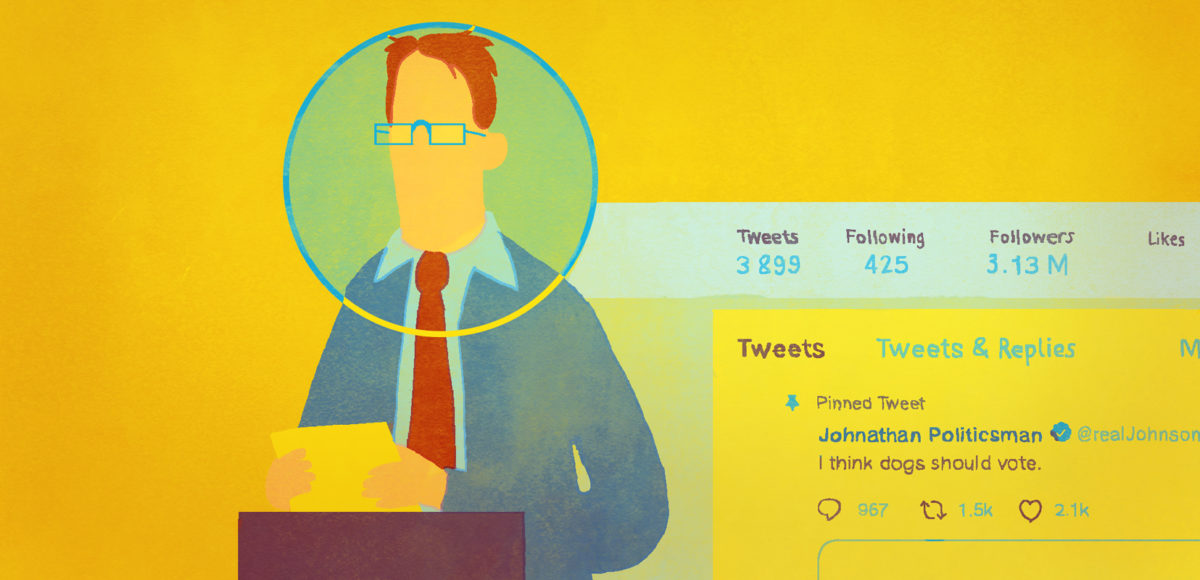by Alexander Görlach
What are the challenges for democracy in the digital age? I would argue there are two of them, regarding representation and participation. We are used to the fact that we elect people as our representatives that will act upon our interest. We do so in due course, mostly every four, sometimes every five years. This rhythm has been deployed to the technological means our forebears knew. It led to the different shapes of democracy, that exist today, parliamentary and presidential.
The limits of technology gave rise to peculiarities such as the Electoral College in the United States. Because Washington was far and the way there on horseback troublesome, the “the winner takes it all” rule deployed. To ensure that the people’s vote was delivered to the capital this was the safest way to send men with the same goal so they would neither shoot each other or would, in case they were shot, still deliver the proper message. Nowadays it seems awkward, outside the US but increasingly within the country as well, how you would justify that one candidate who wins the popular vote will not necessarily become the president.
Other countries have these peculiarities, too. In Germany, for instance, the “Überhangsmandate”. Since the vote is split in two, one considered to be a candidate the other the party vote, a party may end up having more seats in parliament then people on the list of candidates. This results in a parliament that differs in size in each legislative period, an outcome that has been outlawed by the Supreme Court. In both cases, for different reasons, voters may end up having representatives they have not voted for or have never heard of.
With the rise of what was called Web 2.0, social media and smartphone usage, candidates and elected politicians become more transparent and willing to share the details of their work. The means of representation were shaken up: from occasional town hall meetings to daily trials. As trivial as it sounds in the year 2019 even email, preceding the aforementioned tools of the social web, had already revolutionised communication between politicians and voters. The barrier that a formal letter bearer doesn’t exist anymore with the electronic post.
With the rise of what was called Web 2.0, social media and smartphone usage, candidates and elected politicians become more transparent and willing to share the details of their work.
It is no wonder that parties themselves have gone under voter scrutiny. In a personalised age you are less and less keen to take on a whole ideological package. There is a reason why parties ask themselves nowadays what it means to be conservative or social democratic.
Voters now, stimulated by the fast means of communication, e-commerce, and travel also demand faster politics. The learned routine of the Sunday walk every four years to the local school or community center to cast your vote has come under question. In the last European election this May, the head of the electoral commission in Germany expressed concerns about more and more people using “Briefwahl”, meaning they send their vote via post and refrain from the Sunday election activity altogether, which seems to be anachronistic in a time where everything is on-demand and digital.
How to make your voice heard during the electoral period has also changed: e-petitions have become a new norm. Opinions about politics are shared quicker and wider. The new means of communication thereby also opened the door to new forms of false facts and miscommunication.
Voters now, stimulated by the fast means of communication, e-commerce, and travel also demand faster politics.
This results in the call for modernisation of the fabric of democratic societies. It comes with a set of questions regarding the freedom of opinion and the freedom of expression given the potential of false news and the way they are spread through new platforms such as Facebook or Twitter.
However the good news is that democracy has always been in progress and undergone iterations. From the Greek antiquities where only the father of the household was considered to be selected for the task of politics, that was not considered work until one hundred years ago when universal suffrage was achieved. Democracy can modernise itself, once more, when it keeps reflecting on the core elements on which it has to deliver: representation and participation.

 | Technology, AI and ethics.
| Technology, AI and ethics.

